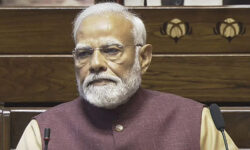
In a significant all-party meeting convened by Tamil Nadu Chief Minister MK Stalin, a crucial concern was raised that the state’s successful population control measures, part of its broader women empowerment agenda, could inadvertently result in a reduction of its parliamentary seats. This gathering aimed to discuss the implications of population metrics on future parliamentary seat allocations, underscoring a unique predicament that blends demographic success with potential political setbacks.
“Tamil Nadu, a pioneer in family welfare, must not be penalized for its progressive outcomes,” asserted Stalin, highlighting the state’s achievements in health, education, and socio-economic indicators, thanks to its effective population control and women empowerment policies. These efforts, while improving the quality of life, might lead to a decrease in the state’s share of parliamentary seats as the national census approaches, which will be used to redraw the constituency boundaries across India.
India’s complex relationship with population control policies dates back to the 1970s, with various states adopting different approaches. Tamil Nadu’s strategy has been markedly successful, fostering women’s rights and healthcare, leading to a steady decline in population growth rates. However, with parliamentary seats distributed based on population, a decrease could potentially dilute Tamil Nadu’s representation and influence in the national legislative process.
The all-party meeting, therefore, sought consensus on addressing this impending challenge, advocating for a criterion that rewards states for effective population control and social development. Participants proposed that policies should encourage states to enhance their human development indices without fearing a reduction in parliamentary representation.
This move by the Tamil Nadu government to foreground the issue at a national level reflects a proactive attempt to reconcile demographic management with political equity, aiming to ensure that states leading in population control do not face unintended political consequences for their success in social advancements.









